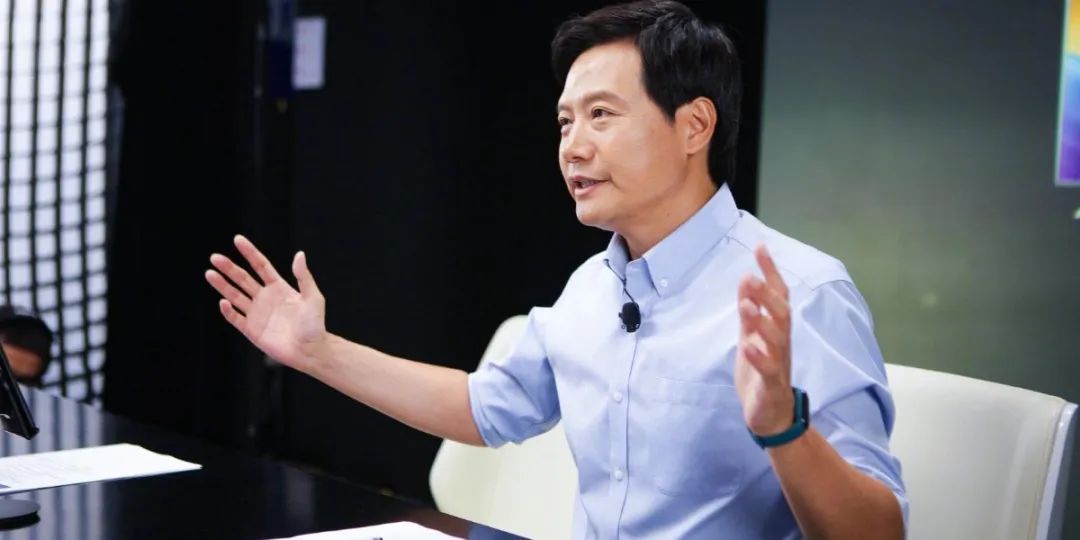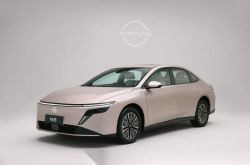Li Yanhong and Lei Jun Converge on the Same Goal
![]() 08/08 2024
08/08 2024
![]() 648
648

Written by Meng Yonghui
Edited by Hu Lijing
As the dust settles on the Luobo Kuaipao fiasco, the heat of Lei Jun's annual speech begins to rise.
Naturally, such an annual speech, dubbed the "Tech Spring Festival Gala," has garnered significant attention from the outside world.
Unsurprisingly, Lei Jun once again focused his annual speech on the automotive industry.
Similarly, after sparking debates on the pros and cons of autonomous driving, Luobo Kuaipao also zeroed in on the impact of autonomous driving technology on the future direction of the automotive industry.
On the surface, there appears to be no difference between Luobo Kuaipao and Lei Jun's speech.
Luobo Kuaipao is primarily about applying and implementing Baidu's AI technology in commercial scenarios, while Lei Jun's speech delves more into his thoughts on automaking and Xiaomi's future approach to the industry.
However, upon closer inspection, it becomes evident that there is an underlying connection between Luobo Kuaipao and Lei Jun's speech.
Both Baidu's application of AI technology and Lei Jun's perspectives on automaking center on the influence of smart technology on automobiles.
The key difference lies in their focus: Luobo Kuaipao prioritizes the intelligent transformation and upgrade of existing vehicles, while Lei Jun's focus is on the future of smart vehicles.
Whether existing or future vehicles, AI-driven smart technology is undoubtedly the crucial factor driving profound changes in the automotive industry.
From this perspective, Luobo Kuaipao and Lei Jun's speech are inherently connected.
They both highlight the profound and comprehensive transformation that AI-led new technologies will bring to the automotive industry.
From an AI perspective, Li Yanhong and Lei Jun ultimately converge on the same goal.
01
We all know that a new wave of AI application and implementation is underway.
For AI players to succeed in this new era, they must apply their AI technology to various scenarios and businesses, forming a vast ecosystem.
This applies to Baidu as well.
Baidu's AI layout is among the earliest in China's tech industry.
Even as internet companies were locked in fierce competition, Baidu had already embarked on its AI journey.
Efforts bear fruit. After years of strategic planning, Baidu has reaped the rewards of its AI investments.
From Wenxin ERNIE to Baidu's large models and AI-driven business transformations, these achievements are testament to Baidu's AI prowess.
Today, Baidu has staged a comeback thanks to AI, and it is now synonymous with AI, just as it once was with the internet.
However, Baidu's AI comeback is not the end goal; rather, it's a stepping stone.
To thrive in the AI era, Baidu must continue to implement AI technologies and build an ecosystem that sustains its established advantages.
This is evident in Baidu's ongoing AI initiatives, with Luobo Kuaipao being a prime example of its AI technology in action.
Luobo Kuaipao showcases Baidu's AI achievements, offering a glimpse into the new possibilities AI presents.
Luobo Kuaipao underscores Baidu's AI leadership. Its impact is evident in reduced travel costs, faster service, and enhanced ride comfort, all of which revolutionize transportation.
Through Luobo Kuaipao, we see that AI's deep transformation of traditional industries will usher in a new industrial revolution, unleashing new opportunities.
Transportation is just the beginning. By applying AI to more scenarios and businesses, we can tap into new development dividends and unlock the post-internet era's blue ocean.
02
Just as Luobo Kuaipao revolutionized ride-hailing and taxi services with AI, a new AI-driven revolution is transforming the automotive industry.
AI is the game-changer that will fundamentally reshape the automotive landscape.
To create truly transformed vehicles, automakers must embrace AI technology.
Leading automakers like Tesla's emphasis on AI and autonomous driving underscores this trend.
Mastering AI-driven autonomous driving equates to dominating the new automotive cycle.
This is why Lei Jun focused his annual speech on AI's profound impact on automaking.
Believing that AI will radically transform automobiles, Lei Jun confidently asserts that Xiaomi's entry into automaking is well-timed.
As he noted, "Intelligence is the soul of the car, and it's just beginning in the electric vehicle era. The automotive industry has a century-long history, but if you genuinely love it and want to succeed, any time is the best time."
Lei Jun, too, emphasizes the importance of AI in shaping the future of automobiles.
AI will become a standard feature in future cars. Only by creating such vehicles can we truly revolutionize the automotive industry.
Focusing solely on the internet or the transition from gasoline to electric power falls short of true automotive transformation.
From an AI perspective, Lei Jun's leadership of Xiaomi Automobile presents significant opportunities.
With early trial-and-error experiences and the gradual adoption of electric vehicles, the automotive industry stands at a crucial juncture, transitioning from electrification to intelligence.
By grasping this transformation and leveraging AI to create truly intelligent vehicles, automakers can seize the new dividends of this pivotal period.
03
Both Luobo Kuaipao's transformation of transportation and Lei Jun's vision for intelligent vehicles converge on the same path: an AI-driven revolution in the transportation industry.
Luobo Kuaipao focuses on transforming existing vehicles with AI, while Lei Jun aims to revolutionize future vehicles with Xiaomi Automobile.
For both traditional and new mobility solutions, strengthening AI implementation and application is crucial to advancing from conventional to autonomous transportation.
Thus, Luobo Kuaipao and Lei Jun's automaking endeavors ultimately converge.
Behind this convergence lies the reality of the AI-dominated new technology era. Players like Baidu and automakers like Lei Jun must continue to unlock AI's dividends and opportunities to thrive in this new era.
AI has matured beyond its incubation phase, entering a stage of practical implementation.
Players must find the right ways to implement AI, achieve commercial closed loop , and revolutionize traditional transportation and manufacturing to usher in a new era of commercial success.
Conclusion
Luobo Kuaipao and Lei Jun's speech both center on AI, illustrating their ultimate convergence.
From this perspective, Li Yanhong and Lei Jun embark on the same AI journey.
This underscores the AI-driven revolution sweeping across industries.
For Baidu under Li Yanhong and Xiaomi under Lei Jun, seizing AI opportunities, finding new implementation paths, and unleashing new industrial possibilities with AI are crucial for success in this new cycle.
Luobo Kuaipao has demonstrated AI's profound impact on traditional transportation, while Tesla's autonomous driving technology has transformed new-age vehicles. Lei Jun shares this focus.
An AI-driven new battle is unfolding, involving not just internet players like Baidu but also automakers like Xiaomi and Tesla.
This transformation encompasses nearly all players, and none can escape its reach.
—End—







